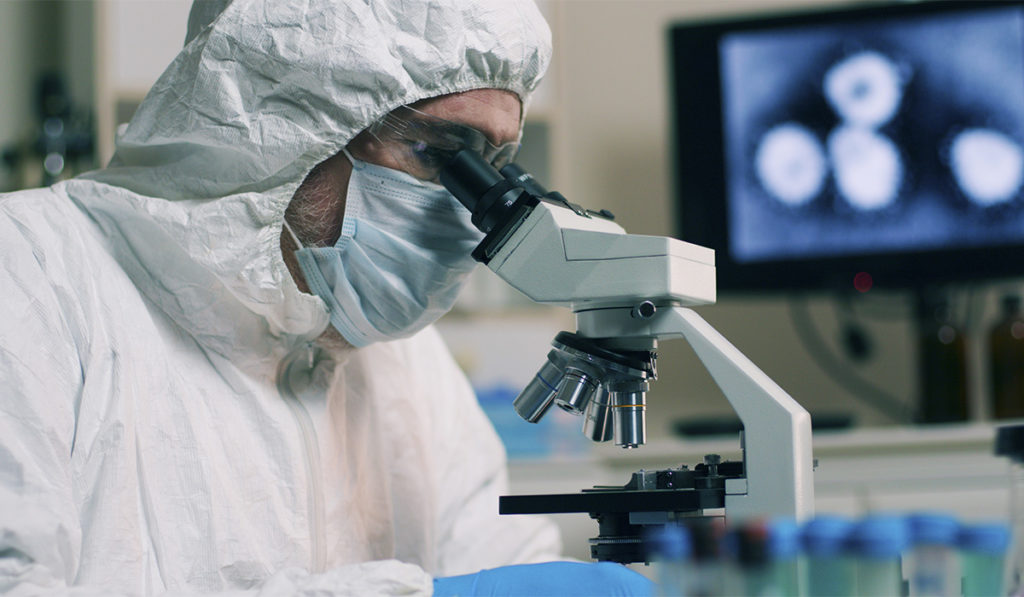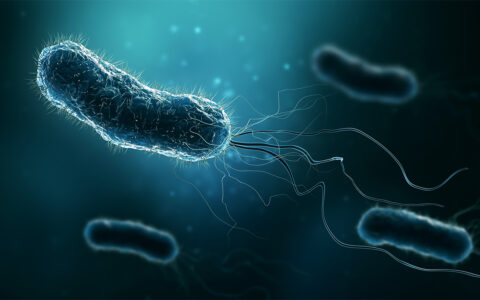In the journal Science Translational Medicine, researchers have provided the first evidence that a drug compound named EIDD-1931 is effective against SARS-CoV-2, the virus that causes COVID-19.
The compound blocked replication of a broad spectrum of coronaviruses. The investigators also showed that EIDD-2801, a form of EIDD-1931 that can be taken orally, prevents severe lung injury in mice with COVID-19 infection.
“We are amazed at the ability of EIDD-1931 and -2801 to inhibit all tested coronaviruses and the potential for oral treatment of COVID-19,” said co-author Andrea Pruijssers, Ph.D., research assistant professor at Vanderbilt University Medical Center.
Promising Results
The compound, developed at the Emory Institute for Drug Development in Atlanta, was previously put to the test in research led by Mark Denison, M.D., Edward Claiborne Stahlman Professor of Pediatrics and director of the Division of Pediatric Infectious Diseases at Vanderbilt; with Maria Agostini Ph.D., a student in the Denison laboratory; Pruijssers; and colleagues in the laboratory of Ralph Baric, Ph.D. at the University of North Carolina at Chapel Hill. The researchers previously reported that EIDD-1931 blocked replication of several coronaviruses potently, worked by introducing lethal mutations in the virus, and effectively blocked resistance development.
In the latest study, the researchers showed EIDD-1931 has antiviral activity against SARS-CoV2, MERS-CoV, SARS-CoV, and closely related bat coronaviruses.
EIDD-1931 inhibited coronavirus replication in human airway cell cultures up to 100,000 fold. In mouse models infected with SARS-CoV or MERS-CoV, giving the drug before or shortly after infection prevented disease, blocked virus replication and prevented death.
Targeting Coronavirus RNA
Denison is an internationally known authority on coronavirus biology, providing foundational data now being used to support COVID-19 clinical trials.
“We knew a coronavirus outbreak would happen, but we didn’t know when,” Denison said. “So from the beginning, we’ve been looking for antiviral compounds active against diverse coronaviruses, and if possible, against multiple virus families.”
“From the beginning, we’ve been looking for antiviral compounds active against diverse coronaviruses, and if possible, against multiple virus families.”
Denison’s team has focused on how coronaviruses replicate inside cells using RNA polymerases. The enzymes are highly conserved across coronaviruses in both structure and sequence, making them an attractive drug target. In many virus families, flooding the cells with nucleoside analogs can trick the viral polymerases into making faulty RNA.
But unlike other RNA viruses, coronaviruses have a proofreading exonuclease, that can check new RNA for mistakes and either prevent or remove them. “This has led to challenges,” Denison said, to identify analogs that can work in the context of proofreading. The new study provides critical evidence that EIDD-1931 and -2801 can accomplish that goal.
Overcoming Resistance
A major concern with any antiviral drugs is the rapid development of resistance, which would render the drug ineffective. The study tested coronaviruses with resistance mutations to remdesivir (RDV), a ribonucleoside analog currently in clinical trials to treat COVID-19 infection. Agostini demonstrated that two mutations that confer some resistance to remdesivir actually increase sensitivity to EIDD-1931.
“Resistance to one drug makes it sensitive to the other drug,” Denison said. Since the resistance mechanisms do not appear to overlap, in combination the drugs might offer a “one-two” punch.
Further Drug Development
Denison and Baric’s laboratories have provided the majority of the preclinical data to support remdesivir’s development, showing its efficacy against a variety of coronaviruses.
“I am hopeful, as everyone on the planet, that remdesivir will show activity in humans or that we’ll find something close that does,” Denison said. “But, we will continue to move forward with the development of these compounds.”
He hopes that clinical trials for EIDD-2801 will begin later this spring. If the drug is successful, Denison notes it could not only help stop the spread of SARS-CoV-2 but also could control future outbreaks of other emerging coronaviruses.






